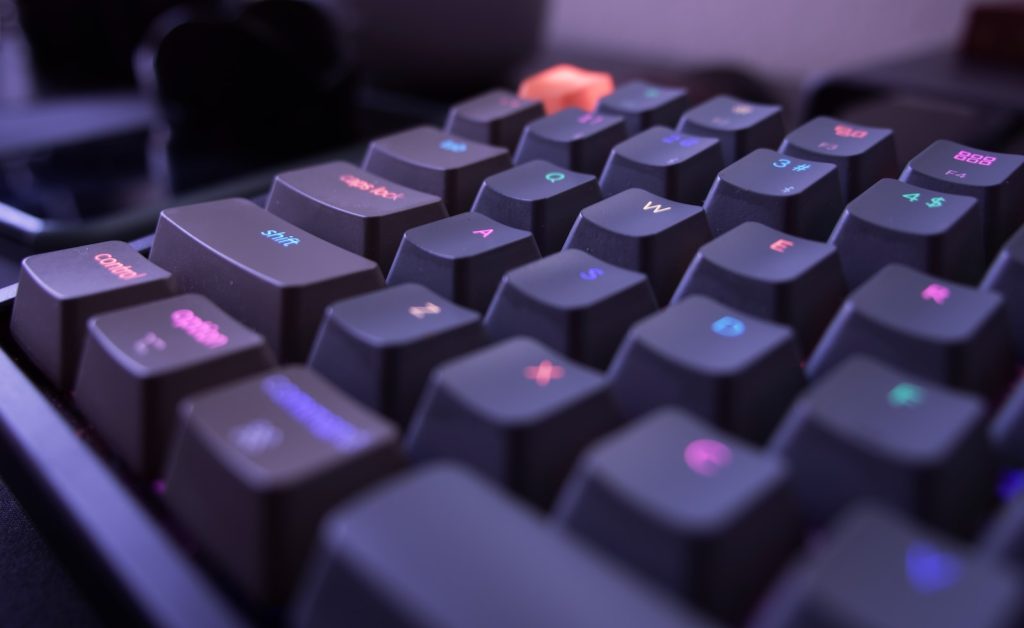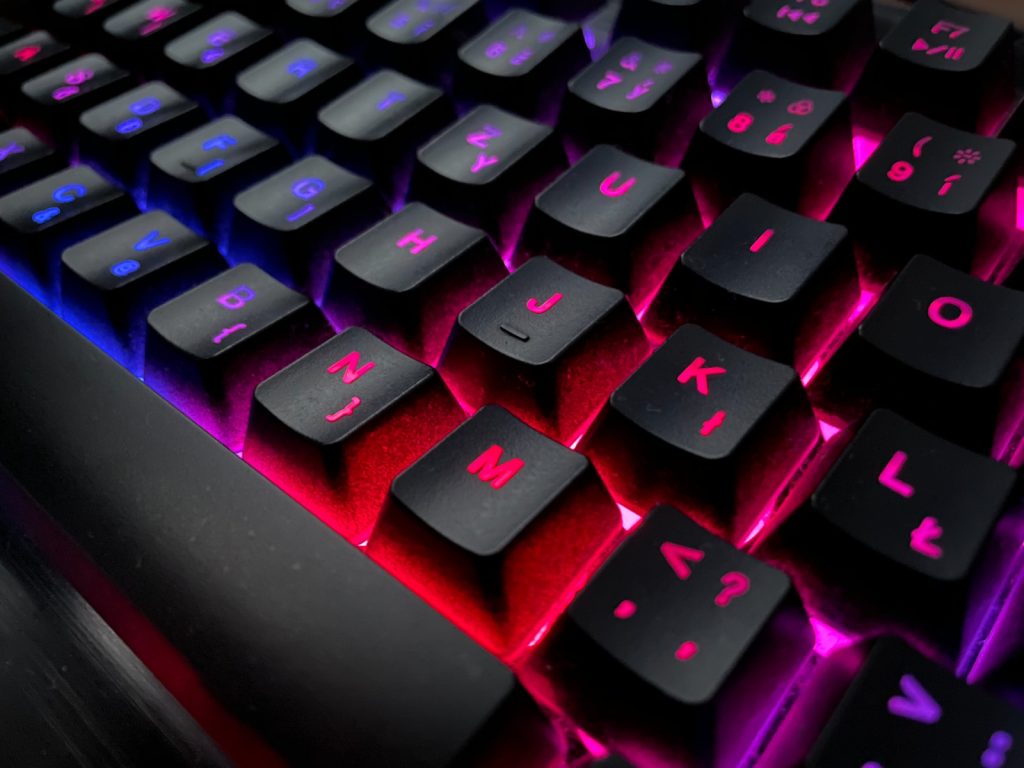Are mechanical keyboards quiet?” If you’ve ever pondered this question or are in the market for a new keyboard, you’ve clicked on the right article. As a writer and someone who spends an obscene amount of time typing, I’ve dived deep into the world of mechanical keyboards, and today, I’ll be sharing some real user experiences to shed light on this pressing question. Buckle up!

The Rise of Mechanical Keyboards
Before we jump into the cacophony (or the lack thereof), let’s understand the allure of these keyboards. Mechanical keyboards, known for their tactile feedback and long-lasting durability, have garnered a passionate following. From gamers wanting that split-second advantage to writers craving that satisfying keypress, there’s a mechanical keyboard for everyone.
The Noise Factor
At the heart of our quest lies the question: Mechanical keyboard noise level. To be clear, not all mechanical keyboards sound the same. The noise they produce largely depends on the type of mechanical switch beneath each key. And with users having unique sound tolerances, what’s “quiet” to one might be a sonic boom to another.
Silent mechanical keyboards are, in fact, a thing. There are switches designed for those who crave the tactile feel but without the clicky noise. These are often labeled as “silent” switches. But do they live up to the name?
Real User Experiences
Let’s turn to the people. I reached out to the online community and gathered some user reviews on keyboard sound:
- Alexa, a software developer: “I recently shifted to a keyboard with quiet mechanical switches. While it’s not as silent as my old membrane keyboard, it’s considerably quieter than the typical clicky mechanical ones.”
- Raj, a gaming enthusiast: “For me, it’s all about the feel. I don’t mind the noise. In fact, the clicky sound adds to my gaming experience.”
- Samantha, a writer: “I’ve tried both the silent mechanical keyboards and the louder ones. The silent ones aren’t library-quiet, but they’re much more apartment-friendly, especially when I’m typing up a storm at 2 am!”
From these experiences, it’s evident that while there are quieter mechanical keyboard options, they might not be as silent as some might hope. But, there’s always a trade-off, right?
Sound Dampening and Quieter Switches
For those tiptoeing on the line, considering a dive into the mechanical world but wary of the noise, there are solutions. Sound dampening keyboard techniques like O-rings and dampening foams can significantly reduce keypress sounds. Additionally, researching and choosing the quietest mechanical keyboard switches can make all the difference. Brands often have sound samples online, so you can listen before you buy.
Mechanical vs Membrane: A Quick Sound Off
When it comes to mechanical vs membrane keyboard sound, it’s a mixed bag. Membrane keyboards, known for their soft keypresses, generally produce less noise. However, as silent mechanical switches and sound-dampening innovations come to the forefront, the gap narrows.
Tips for Choosing Your Ideal Mechanical Keyboard
After considering the varied experiences and weighing the pros and cons, you might be on the fence about diving into the world of mechanical keyboards. Fear not! Here are some expert tips to guide you through the selection process.
Know Your Switches
Understanding the different types of mechanical switches is paramount. Broadly speaking, switches can be categorized as:
- Clicky: These offer tactile feedback and a distinct “click” sound. Perfect for those who enjoy audible confirmation of a keypress.
- Tactile: These have a bump you can feel, but without the loud click sound. It’s a middle-ground choice.
- Linear: Smooth keystrokes without tactile bumps or clicks. Ideal for individuals seeking the quietest mechanical experience.
Personalize Your Keyboard
The beauty of the mechanical keyboard universe is its customization potential. From custom keycaps to personalized RGB lighting, there’s a whole realm of personalization waiting for you.
For the noise-conscious, consider the following:
- O-rings: These little rubber rings are installed under the keycaps. They cushion the keypress, dampening the sound and slightly altering the feel.
- Padded boards: Using padded boards or mats beneath your keyboard can further absorb vibrations and reduce noise.
- High-profile keycaps: These can alter the sound profile of your keypresses. Experiment with PBT or ABS keycaps and observe the difference.
Online Communities are Goldmines
There are passionate mechanical keyboard communities online, like Reddit’s r/MechanicalKeyboards or various Discord channels. They’re filled with enthusiasts who have tested numerous configurations and are eager to share their findings.
James, a community member, shared: “I’ve been on a journey to find the best silent keyboards. After trying ten different models, I’ve settled on one with tactile switches and sound-dampening mods. It’s quiet enough for my shared workspace!”
Testing is Key (pun intended)
It’s essential to remember that everyone’s typing experience is subjective. What might be music to one person’s ears could be noise to another. Before committing, try visiting a local store or a friend who owns a mechanical keyboard. Test various models, listen to the sound, feel the keypress, and decide what suits you best.
The Future is (Possibly) Quiet
With the rising demand for quiet mechanical keyboards, companies are constantly innovating. We might soon see even quieter switches and advanced sound-dampening solutions. Keeping an eye on the latest developments will ensure you’re always ahead in the quiet keyboard game.

Beyond Sound: The Other Perks of Mechanical Keyboards
While our primary focus has been the auditory aspect of mechanical keyboards, it’s worth delving into the other benefits these keyboards bring to the table. After all, sound isn’t the sole reason why mechanical keyboards have such a cult-like following.
Durability Matters
Mechanical keyboards often outlast their membrane counterparts. Built with individual mechanical switches for each key, these keyboards can withstand tens of millions of keypresses, making them an excellent investment for heavy typists.
Liam, a graphic designer, said, “I’ve had my mechanical keyboard for over five years now. It’s endured countless hours of design work, coffee spills, and even a couple of drops. It’s still going strong!”
A Tailored Typing Experience
Mechanical keyboards are modular by design. This means you can swap out worn or damaged keys, or even mix and match to create a customized look and feel. The potential to change the color, texture, and even the height of the keys allows users to have a truly personalized typing experience.
Nina, a transcriber, shared: “I’ve tailored my keyboard to have different keycaps for frequently used keys. Not only has this added a touch of personality to my workspace, but it’s also improved my typing speed.”
Ergonomics and Comfort
With numerous designs available, many mechanical keyboards prioritize ergonomics. Whether it’s a split design, tenting capabilities, or wrist rests, these keyboards can offer a more comfortable typing experience, especially during extended sessions.
Michael, a novelist, remarked, “Switching to an ergonomic mechanical keyboard changed my life. My wrist pain has significantly reduced, and I can type for hours on end.”
The Joy of Feedback
Beyond the sound, the tactile feedback from a mechanical keyboard can be incredibly satisfying. That tangible sensation with every keypress can make typing feel more deliberate and can even improve typing accuracy for some.
Aisha, a student, noted: “The feedback I get from my mechanical keyboard has genuinely made typing more enjoyable. I make fewer errors, and I feel more connected to my work.”
Mechanical Keyboards in the Workspace
As remote work and home offices become the norm, the tools we use play a pivotal role in our productivity and comfort. Mechanical keyboards, with their blend of durability, customization, and tactile satisfaction, have found their way into numerous workspaces around the world.
However, with communal working spaces and shared households, the sound of typing can become an issue. Hence, the need for quiet mechanical keyboards is more pronounced than ever. Innovations are continually emerging in response to this demand. From silent switches to advanced dampening techniques, the industry is listening (pun intended) to its users.
Conclusion
In our deep dive into the world of mechanical keyboards, we’ve learned that their noise levels vary based on switches, with options for quieter typing experiences available. Real users have varying opinions, highlighting the need for personal trials. Beyond sound, mechanical keyboards offer durability, customization, ergonomic design, and tactile feedback. With the rise of remote work, there’s a growing demand for quieter keyboards, prompting ongoing industry innovations. In the vast landscape of mechanical keyboards, it’s crucial to balance personal preferences, from tactile satisfaction to ambient noise, ensuring you find the perfect fit for your typing needs.
Frequently Asked Questions (FAQs)
1. What are mechanical keyboards?
Mechanical keyboards are a type of keyboard that uses individual mechanical switches for each key. They are known for their durability, tactile feedback, and often, a distinct audible click sound.
2. Are mechanical keyboards louder than regular keyboards?
Mechanical keyboards can be louder than membrane keyboards due to the mechanical switches used. However, the noise level can vary based on the type of switch. There are silent mechanical keyboards available that offer quieter typing experiences.
3. Which mechanical switches are the quietest?
Linear switches, such as Cherry MX Reds or Cherry MX Silent Reds, tend to be quieter compared to tactile or clicky switches. But always check the switch specifications and user reviews on keyboard sound before buying.
4. How can I reduce the noise of my mechanical keyboard?
Using sound-dampening techniques like O-rings under keycaps, padded boards, or choosing high-profile keycaps can help reduce the noise produced while typing on a mechanical keyboard.
5. Are there silent mechanical keyboards available in the market?
Yes, there are mechanical keyboards labeled as “silent” that use specific switches designed to reduce the audible click. While they may not be completely silent, they are quieter than traditional mechanical keyboards.

Experience is what matters at the end!!
Hi! This is Jacob Jay – founder of Keyboardgear.com! From childhood to adulthood, I’ve always remained passionate about IT, and the revolution in this industry, especially gaming on the PC can’t go out of my way. Since I’m an enthusiastic gamer, and I love to experience various gaming accessories, particularly mechanical keyboards, that really boost my gaming adventure manifolds. So, my nerve cells hit me to transfer my experiences into word form and share with others to identify the ideal keyboards perfectly fit for their gaming modes.
I know very well how hard it is to find the high-quality items available on the internet that ought to be exactly the same as seen as on the screen. But the counterfeiters have ruined the user’s trust. As I have passed all such situations, I’m obliged to deliver the genuinity and express the same as what I am saying.
So, now, I’m working on the mission to provide very helpful and frankly but trustworthy reviews and guides about various mechanical keyboards, mouses, and other gaming accessories as per my personal experiences and sound knowledge.
